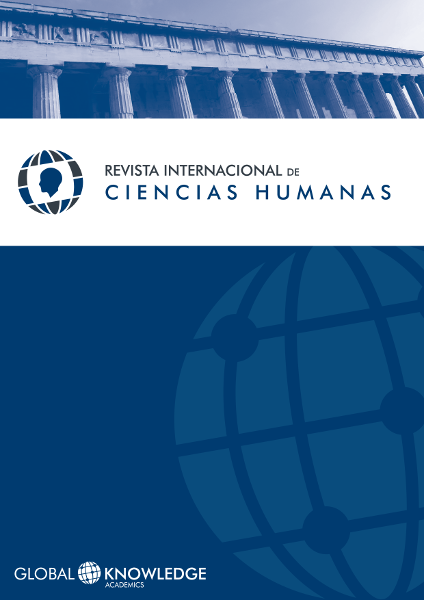Skepticism versus Cosmopolitanism: An Analysis of Perspectives of Robert Dahl and David Held about Sense of Democracy in the Context of Globalization
DOI:
https://doi.org/10.37467/gka-revhuman.v4.758Keywords:
Skepticism, Cosmopolitanism, Democracy, International Organizations, GlobalizationAbstract
The purpose of this article is to compare two analytical perspectives that have interpreted the democratization of the international organizations (IOs) in the years 1990 and 2000. The first of this perspectives is supported by authors such as Robert Dahl and Philippe Schmitter who consider improbable to realize the democracy in the space outside the national States. They are 'skeptical', according to the term employed by Dahl to refer to their perspective. On the other hand, David Held sustained a more optimistic interpretation by advocating that the nature of contemporary democracy suffered changes as result of the economic globalization process. For this reason, Held considered possible the democratization of IOs as well as the development of a ‘cosmopolitan citizenship’, located above the limits of the States. To develop the counterpoint between this two perspectives, this article will carry out a literature review of the production of the two authors and will be divided into two main sections. The first one will examine the prospect 'skeptical' of Robert Dahl regarding the possibility of democratization of international organizations. The second section examines the cosmopolitan perspective from David Held. In concluding remarks, the article identifies the elements of reflection generated by two perspectives concerning the sense of democracy in the context of globalization.
References
Banco Mundial. (2012). Citizen-Driven Accountability for Sustainable Development. Giving Affected People a Greater Voice – 20 Years On. Junho de 2012. Disponível em: ewebapps.worldbank.org/apps/IP/IPPublications. Acesso em: 04/06/2014.
Banco Mundial. (2013). Annual Report – The Inspection Panel – 2012-2013. Disponível em: ewebapps.worldbank.org/apps/IP/IPPublications. Acesso em: 04/06/2014.
Dahl, R. (1994). A Democratic Dilemma: System Effectiveness versus Citizen Participation. Political Science Quarterly , 109 , 23-34.
Dahl, R. (1999). Can International Organizations be Democratic? A Skeptic’s View. Em I. Shapiro e C. Hacker- Cordón (Ed.), Democracy’s Edges. Cambridge: Cambridge University Press.
Grant, R. W. e Keohane, R. (2005). Accountability and Abuses of Power in World Politics. The American Political Science Review , 99 (1), 29-43.
Held, D. (1991). A democracia, o Estado-nação e o sistema global. Lua Nova , 23 , 145-194.
Held, D. (2005). Democratic Accountability and Political Effectiveness from a Cosmopolitan Perspective. Em D. Held e M. Koenig-Archibugi (Ed.), Global Governance and Public Accountability. Blackwell Publishing.
Keohane, R. O. e Nye, J. S. (2001). Power and Interdependence . New York: Longman.
Martins, L. (1999). Novas dimensões da “Segurança Internacional”. Em G. Dupas, T. Vigevani (Ed.), O Brasil e as novas dimensões da segurança internacional . São Paulo: Editora Alfa-Omega/FAPESP.
Moravscik, A. (2004). Is There a “Democratic Deficit” in World Politics? A framework for Analysis. Government and Opposition – An International Journal of Comparative Politics, 39 (2), 336-363.
O’Donnell, G. (1998). Accountability horizontal e novas poliarquias. Lua Nova, 44 , 27-54.
Pereira, A. E. (2014). Políticas públicas e democracia. Em T. I. Cianciarullo, I. Panhoca, L. M. de M. Bonini (Ed.), Políticas Públicas: Estudos e casos. São Paulo: Editora Ícone.
Rosenau, J. (1992). Citizenship in a Changing Global Order. Em J. Rosenau, E.-O. Czempiel (Ed.), Governance Without Government: Order and Change in World Politics. Cambridge: Cambridge University Press.
União Europeia. (2014). Tratados da UE . Disponível em: http://europa.eu/eu-law/decisionmaking/treaties/index_pt.htm; Acesso em 12/07/2014.
Downloads
Published
How to Cite
Issue
Section
License
Those authors who publish in this journal accept the following terms:
- Authors will keep the moral right of the work and they will transfer the commercial rights.
- After 1 year from publication, the work shall thereafter be open access online on our website, but will retain copyright.
- In the event that the authors wish to assign an Creative Commons (CC) license, they may request it by writing to publishing@eagora.org









